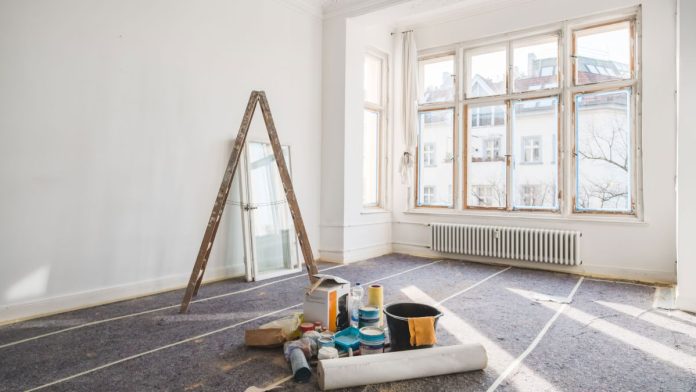Embarking on a do-it-yourself home renovation project can be an exciting and rewarding endeavor. However, before diving into the world of hammers and paintbrushes, thorough preparation is key to ensuring a successful outcome. We’ve created a comprehensive guide outlining all the essential things you need to have in place before undertaking a DIY home renovation. By following these preparations, you can save money, gain valuable skills, and transform your living space into a personalized haven where you can play on 22Bet guilt-free.
Detailed Planning
Table of Contents
The foundation of any successful DIY project lies in detailed planning. Begin by defining the scope of your renovation, whether it involves a single room or the entire house. Create a clear vision of the desired outcome and set a realistic budget. Research and gather inspiration from various sources, such as magazines, online platforms, and home improvement shows. Develop a detailed timeline and consider any potential disruptions to daily routines. Comprehensive planning will serve as a roadmap throughout the project, minimizing unexpected challenges and ensuring efficient progress.
Research and Skill Development
Before starting your DIY renovation, invest time in researching the techniques, tools, and materials required for each task. Online tutorials, books, and workshops can provide valuable guidance and help you gain confidence in handling different aspects of the project. Acquiring essential skills such as carpentry, plumbing, or electrical work will not only enhance your abilities but also enable you to make informed decisions and troubleshoot any issues that may arise during the renovation process.
Building Permits and Regulations
Certain home renovations may require building permits or adhere to specific regulations. It is crucial to contact your local building authority to determine which permits, if any, are necessary for your project. Familiarize yourself with the local codes and regulations regarding safety, electrical work, plumbing, and structural changes. Complying with legal requirements will ensure that your renovation meets the necessary standards and avoids potential legal and safety issues down the line.
Quality Tools and Equipment
Investing in high-quality tools and equipment is essential for a successful DIY renovation. Depending on the nature of your project, you may need a range of tools, including a drill, circular saw, measuring tape, level, sander, and paintbrushes. Consider renting specialized tools that you may only require for specific tasks. Additionally, ensure that you have a well-equipped toolbox with essential items like screws, nails, and adhesives. Having the right tools at hand will streamline your work, enhance precision, and contribute to a professional finish.
Safety Precautions
DIY home renovations involve various hazards, and prioritizing safety is paramount. Before starting any work, familiarize yourself with safety guidelines and acquire appropriate safety gear such as goggles, gloves, masks, and protective clothing. Inspect your workspace for potential hazards and implement necessary precautions, such as securing loose wires and creating a clean and organized environment. If the project involves major structural changes or electrical work, consult with professionals to ensure compliance with safety standards and to mitigate potential risks.
Reliable Suppliers and Contractors
For materials and supplies required during your renovation, establish relationships with reliable suppliers. Research and compare prices, quality, and delivery options to ensure you receive the best value for your investment. In some cases, hiring professional contractors for specialized tasks, such as plumbing or electrical work, may be necessary to ensure safety and compliance. Take the time to research and select reputable contractors who have the necessary qualifications, experience, and references. Collaborating with experts when needed will ensure that your DIY renovation proceeds smoothly and produces desirable results.
Adequate Budgeting and Financing
One of the crucial aspects of a DIY home renovation is proper budgeting and financing. Determine the estimated costs of materials, tools, permits, and any professional services required. Set aside a contingency fund to account for unexpected expenses that may arise during the project. If necessary, explore financing options such as personal loans or home equity lines of credit to ensure you have sufficient funds to complete the renovation. A well-planned budget will help you stay on track and avoid financial strain throughout the renovation process.
Clear Communication and Coordination
If you live with family members or roommates, open and clear communication is vital. Discuss your renovation plans with them to ensure everyone is aware of the project’s scope, timeline, and potential disruptions. Set expectations regarding noise, dust, and access to certain areas of the house. Additionally, if you plan to involve friends or family members in the renovation process, establish clear roles and responsibilities. Effective communication and coordination will foster a supportive environment and help the project progress smoothly.
Waste Management and Recycling
Home renovations often generate a significant amount of waste. Prioritize responsible waste management by planning how you will dispose of debris and unused materials. Check local regulations and explore recycling options for materials like wood, metal, or cardboard. Consider renting a dumpster or arranging for regular pickups by waste management services. By incorporating sustainable practices into your renovation, you can minimize environmental impact and contribute to a greener future.







